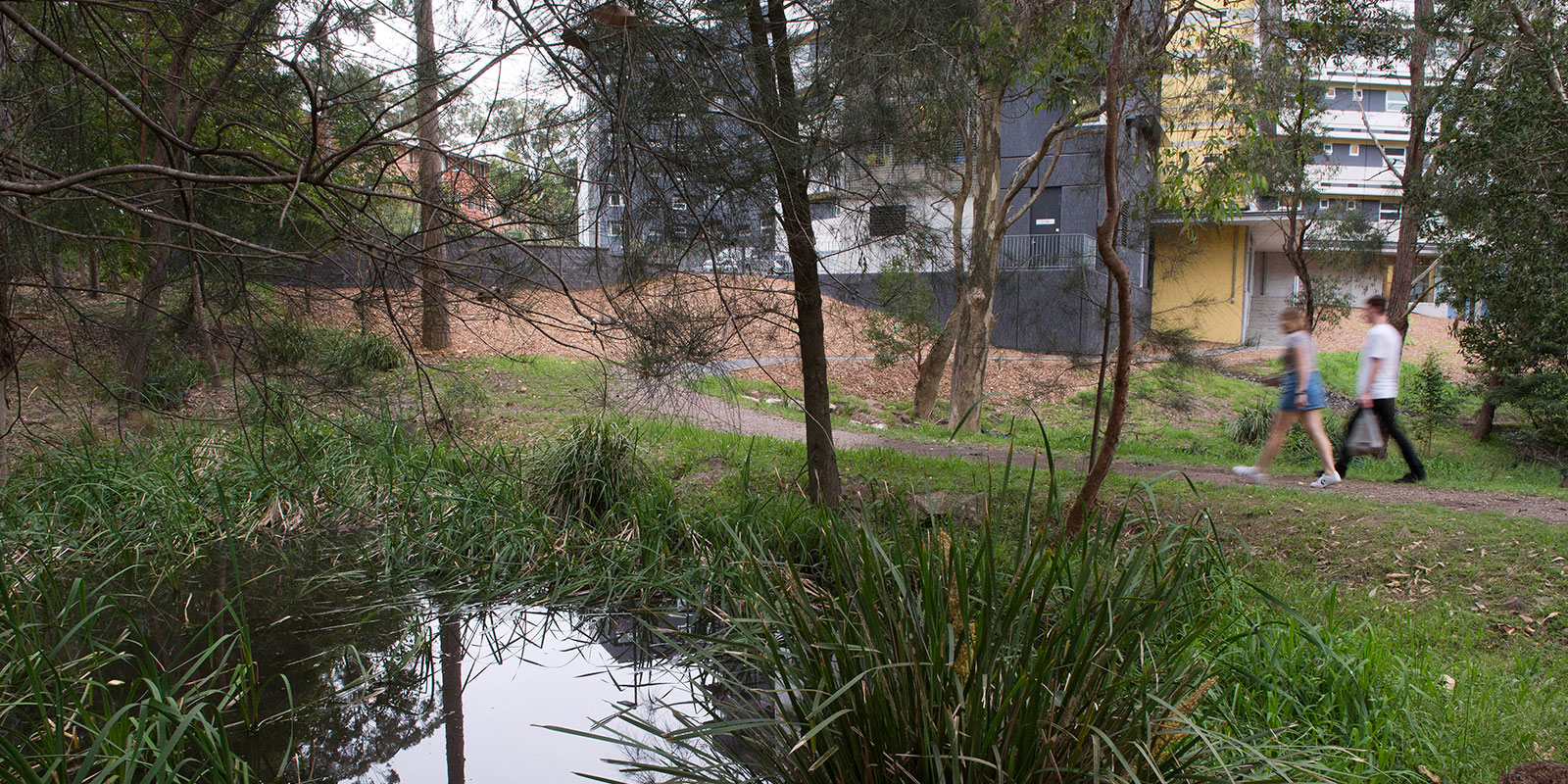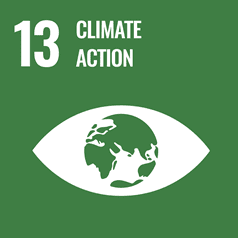

Goal 13:
Climate Action
Cooperative Planning for Climate Disasters
The University of Newcastle plays a significant role in cooperative planning for climate change-related disasters, including the displacement of people both within Australia and across borders. Through our Disaster and Development Research Group, the University investigates disaster risk reduction strategies, post-disaster housing systems, and community-based resilience approaches. This includes evaluating institutional frameworks and promoting “building back better” through land use planning and building codes.
In 2024, a key contributor to this effort was CIFAL Newcastle, our United Nations-affiliated training and research centre. CIFAL Newcastle collaborates with governments, communities, and international partners to implement the Sendai Framework for Disaster Risk Reduction and the UN Sustainable Development Goals. The centre delivers capacity-building programs, develops strategic frameworks, and facilitates knowledge transfer to empower communities and institutions to prepare for and respond to disasters effectively.
The University also engages in research on internal displacement, such as the impacts of recent floods. This work highlights the growing complexity of disaster-induced displacement and the need for policy and governance reforms to support affected populations. One such study is Dr Irene Perez Lopez' research series into the Hunter River, the largest coastal catchment in NSW, to re-think the design of estuary cities in the climate century. Through her research, Dr Perez Lopez hopes to inform more evidence-based design guidelines that take advantage of unique estuary characteristics to create more sustainable, secure, resilient and liveable estuary cities.

The University is driving local action on climate resilience through targeted research aligned with the UN Sustainable Development Goals. In collaboration with government and community stakeholders, researchers from the Centre for Sustainable Development have been working to improve flood resilience in the Hunter Region—one of Australia’s most flood-prone areas. This project supports SDG 13: Climate Action, by identifying practical measures to reduce vulnerability and enhance community preparedness. Through workshops, data analysis, and participatory engagement, the initiative has mapped local knowledge, assessed adaptive capacity, and developed context-specific recommendations for flood risk management. This work not only strengthens local responses to climate-related disasters but also contributes to broader efforts in climate adaptation and sustainable regional planning.
Through initiatives like this, the Pacific Node, and partnerships with regional governments, we contribute to transnational climate resilience efforts, helping communities across the Pacific address environmental and social challenges linked to climate change.

Drafting of practitioner’s guideline and introduction of disaster waste systems
Enabling Pacific Islands to effectively manage disaster waste
This project included the following activities:
(a) Development of Template for National and Community Disaster Waste Management Plans with Drafting/Guiding Instructions;
b) Development of an Operational Guide on the establishment of an Environment Sector Working Group (EWG); and
(c) Standard Methodology for Estimating and Recording of Disaster Waste and Biodiversity Loss and Damages following disasters
Design, Develop, and Deliver a Regional Virtual Vocational Training Program on disaster waste management
Enabling Pacific Islands to effectively manage disaster waste
This project is a sub-project of a larger waste management project that included three other sub-projects on used oil management, sustainable financing mechanisms for waste management, and project management. It was conducted in partnership with CIFAL-Newcastle. It involved designing the learning platforms, developing the course structures and contents and delivering the courses.
Shelter self-recovery in Vanuatu
Recommendations and guidance for future self-recovery initiatives
This project investigated the lived experience of shelter self-recovery after disasters for communities and how shelter contributes to community recovery and resilience. It provided lessons on how humanitarian support for shelter self-recovery has evolved through time and impacts disaster risk reduction, preparedness and the role of women and girls by examining shelter responses to disasters by CARE Vanuatu and local and national authorities and organisations. It was conducted across Pentecost, Maewo and Tanna islands, following participatory research approaches.
Climate smart adaptive resilience and engagement for animal evacuation
To upgrade and extend animal sheltering facilities
This project worked with key stakeholders that underpin the Hunter region’s economies and communities. It responded to the tremendous impacts of the 2019-2020 bushfires in NSW using co-creation approaches, innovative, cost-effective resilience technical solutions. It aimed to collate logistical data requirements to better protect the wider regional agricultural sector and vulnerable communities, enabling them to thrive in disasters.
Improving local resilience to floods in the Hunter region
To address Sustainable Development Goal (SDG) 13
This research project was concerned with the recent floods in eastern Australia, understood to be related to climate change. It thus focused on SDG 13 on Climate Action, seeking to address the critical challenge of floods specifically in the Hunter region, piloted in two LGAs (Cessnock and Singleton). The project sought answers to how local resilience to and adaptive capacity for floods can be improved in the Hunter region to address SDG 13. Consultations with local participants allowed developing a set of principles for flood risk management.
Capacity assessment of self-recovery in New Caledonia
To assess which aspects will and will not succeed according to the context
This research project aimed to investigate the opportunities and challenges with regard to self-recovery in New Caledonia, drawing from the experience elsewhere in the Pacific region, such as Vanuatu. Through this investigation, context-specific guidelines are being developed for self-recovery in New Caledonia.
The University of Newcastle acknowledges the traditional custodians of the lands within our footprint areas: Awabakal, Darkinjung, Biripai, Worimi, Wonnarua, and Eora Nations. We also pay respect to the wisdom of our Elders past and present.